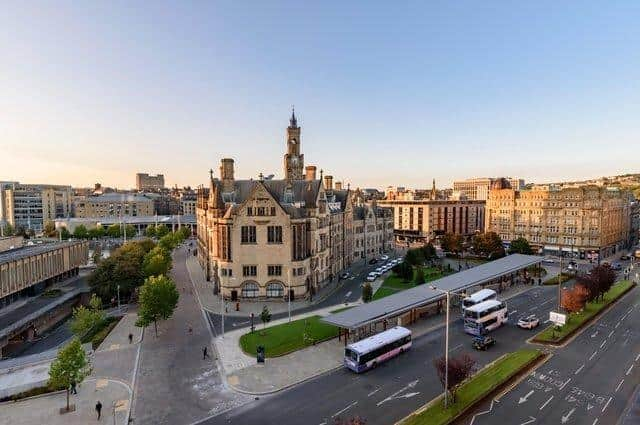Bradford Council may use up to £200m of reserves in just two years
At year end on March 31 2021, Bradford Council’s reserves stood at £256.5m, however by year end two years later that figure had dropped to £120.5m.
A further drop of £50m is expected to balance the books for this financial year, 2023-24. A report to the council’s executive in July described how its reserves would “reduce to £68m, which will be an historic low.
Advertisement
Hide AdAdvertisement
Hide Ad“The council has managed its reserves prudently however acute on-going financial pressures have left reserves close to exhaustion and reliance upon them is unsustainable.”


In Calderdale, the council has earmarked £24m of its own reserves to help plug gaps in the current financial year.
Meanwhile, Leeds City Council has published its draft accounts for 2022-23, which looks forward to the present financial year where the authority has “identified £58.6m of planned savings needed to achieve a balanced budget position.”
The city’s authority expects to have to make more cuts to its budget over the next three years.
Advertisement
Hide AdAdvertisement
Hide AdFunding has been squeezed at local authorities for a number of years, with Bradford Council saying it has had to deliver more than £300m in cuts to its budget since 2011.
An increase in demand on public services coming after Covid measures – especially adult care and children’s services – along with unprecedented inflation on overheads including energy, have created what the Local Government Association (LGA) has described as “a perfect storm” that “risks hampering council efforts to help level up communities and support residents through the cost-of-living crisis.”
The LGA is the membership body of local authorities across England and Wales, working to represent the interests of councils at a national level.
At the start of the year it criticised the central government for providing its fifth one-year settlement to councils in order to deal with inflationary pressures on forthcoming budgets.
Advertisement
Hide AdAdvertisement
Hide Ad“Councils want to work with Government on a long-term funding plan which ensures they have adequate resources, certainty and freedoms and can deliver world-class local services for our communities,” said Coun James Jamieson, Chairman of the Local Government Association, in February.
“The Government also needs to urgently publish public health grant allocations for this year so councils know how much they can budget for essential services to help keep people healthy throughout their lives, including for treating drug misuse and tackling obesity.”
Talking to The Yorkshire Post this week, Liberal Democrat peer Lord Scriven, former leader of Sheffield Council and a Vice President for the LGA called for reforms to the current funding model.
“The government can’t pretend any more that sticking plaster funding for social care is sustainable. Until the Government sorts out long term funding for social care, councils will have to raid reserves and cut other services,” he said. “Enough is enough, it’s time for fairer funding.”
Comment Guidelines
National World encourages reader discussion on our stories. User feedback, insights and back-and-forth exchanges add a rich layer of context to reporting. Please review our Community Guidelines before commenting.
